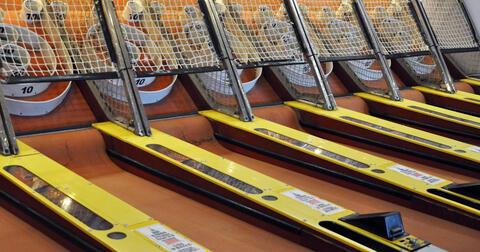Michigan bill would make some arcades illegal gambling establishments
Will Chuck E. Cheese become a den of iniquity?
A gambling bill introduced in the Michigan House would make playing certain recreational games illegal. House Bill 5227, introduced by Rep. Cynthia Neeley, D-Flint, redefines slot machines in state law, most likely to close loopholes created by new gambling technologies.
The legislation’s definition of slot machines is too broad, Steve Delie, director of labor policy at the Mackinac Center, told CapCon.
“This bill is a classic example of politically caused unintended consequences,” Delie said. The definition is so broad, it would outlaw what is clearly recreational activity, he added. “Unless the Michigan Legislature wants to make it a felony for kids to play at the arcade, the proposed law should be seriously amended or scrapped altogether.”
If legislators do not narrow the bill’s definition of slot machines, businesses such as Dave and Busters and Chuck E. Cheese would be subject to gambling laws. Games where a player can earn tickets and exchange them for prizes would be considered gambling.
The bill’s current definition of slot machine reads:
As used in this chapter, “slot machine” means any mechanical, electrical, electromechanical, or other device, contrivance, or machine that, on insertion of a coin, token, or similar object, or on payment of any consideration, is available to play or operate.
The play or operation of the slot machine, whether by reason of skill of the operator or application of the element of chance, or both, may deliver to or entitle the person playing or operating the machine to receive cash, premiums, merchandise, tokens, or anything of value, whether the payoff is made automatically from the machine or in any other manner.
The new definition seems to be aimed at capturing video slots, which are not defined in the state’s gambling laws. The current definition refers to slot machines as a mechanical device running on a drum on a wheel. The new definition includes “electrical” and “electromechanical” mechanisms.
The legislation exempts machines that reward high scores with free plays, as long as players cannot bank them for future visits.
Rep. Neeley did not respond to an email seeking comment.
Michigan Capitol Confidential is the news source produced by the Mackinac Center for Public Policy. Michigan Capitol Confidential reports with a free-market news perspective.

